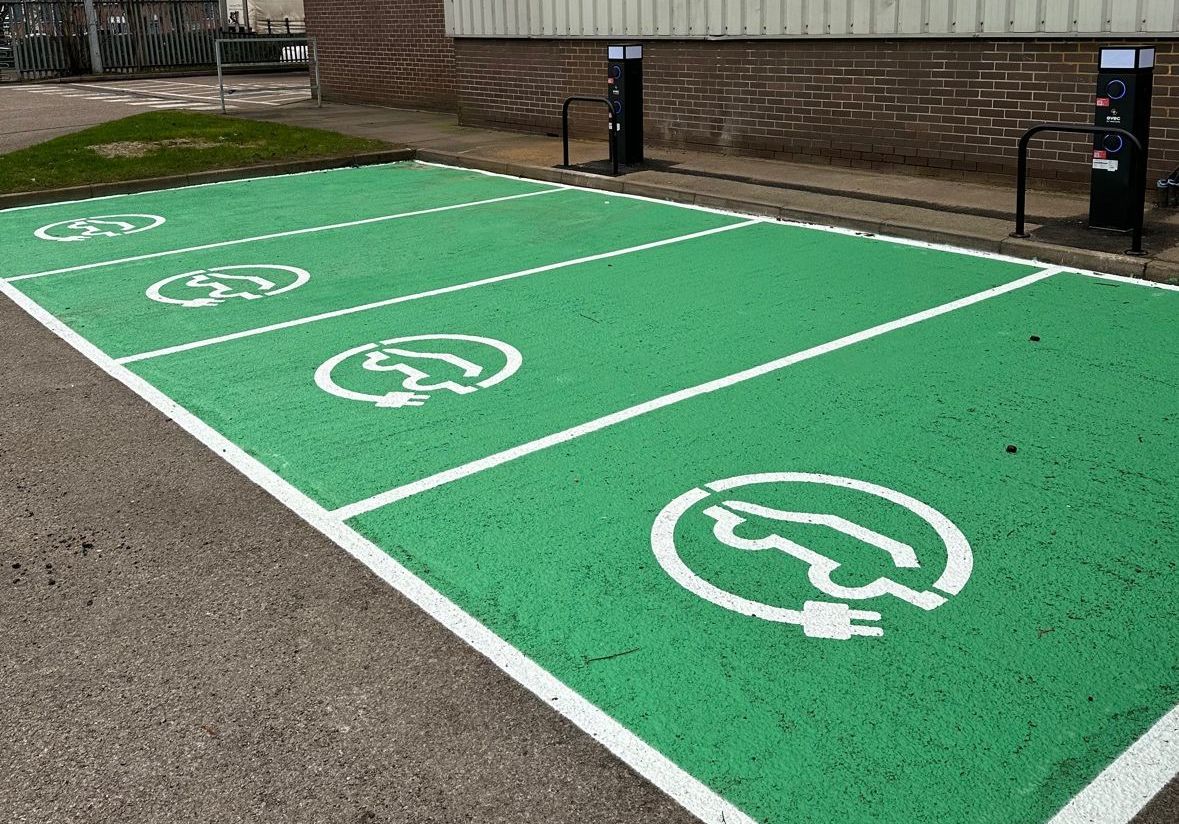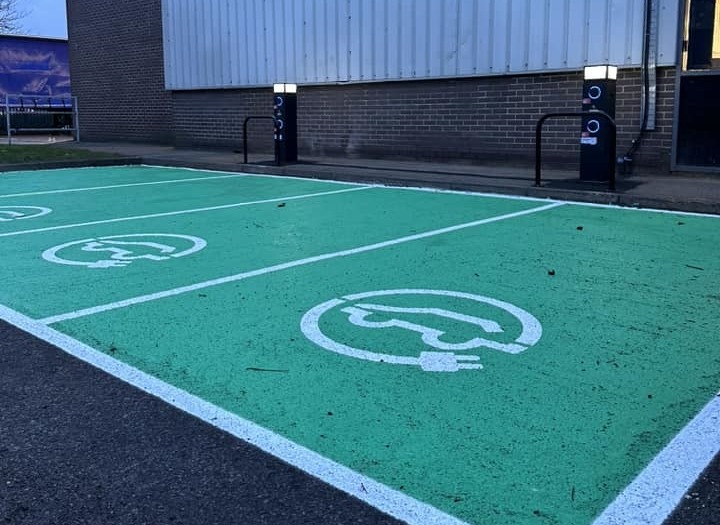Charging into the future
Posted on 14th March 2024

We’re very pleased with the successful installation of two dual EV charging points at our client’s headquarters in Northampton.
The MSE team handled the whole installation package for the dual 22kW EV chargers.
We worked with local contractors PJ Dolman Landscapes for the ground works and Northampton Line Markings for the bay painting.
By taking charge of the project from start to finish, we provided our client with a single point of contact and a seamless experience.
Having completed the Northampton project, we’re looking forward to working at two more sites shortly.

Commercial EV charging considerations
Vehicle type. The best type of charger to choose depends on the type of vehicles you use.
Tethered chargers equipped with a cable only work with certain vehicles. Universal chargers require a suitable cable for your vehicle making them preferrable for workplace or fleet charging.
Location. The most suitable charging options often depend on the use of your vehicles, the routes they travel and your drivers’ needs.
For regularly unused vehicles or those staying on-site overnight, charging EVs at your depot or workplace is a good option. If you’re leasing your premises, you will need permission from your landlord to install EV charging points. You’ll also need access to a suitable power supply and parking spaces. Alternatively, when working off-site, there’s also a growing network of public chargers.
Users. Depending on your location and business type you might want to your chargers available to employees or visitors for their own vehicles. If your site is easily accessible, you could attract new customers by offering use of your chargers when they visit.
Control. Management systems for some chargers allow you to charge tariffs or control and monitor access with RFID (radio frequency identification) cards.
Working patterns. The speed of charger and therefore the electrical supply you need depends on your vehicles and their use. Generally, faster chargers cost more. A 7kW charger is suitable if your vehicles can charge overnight or stay on site for several hours. The 22kW fast chargers our clients installed suit vehicles that need regular recharging to stay on the move.
Grants. The electric vehicle infrastructure grant is available to small and medium-sized businesses. It provides funding towards building and installation work for multiple chargers you plan to use now or later. The grant covers 75% of the cost up to a maximum of £15,000. You can get up to £350 per charger socket installed or up to £500 per parking space enabled for EV charging. You can receive up to five grants across five different sites.
Let us know if we can help
MSE is committed to sustainability and supporting the transition to electric vehicles. If you need our EV charging installation services we’ll deliver a reliable and efficient solution tailored to your needs.
Tagged as: electrical installation, EV charging
Share this post:




